(Italiano) ROBIN WILLIAMS AMERICAN MASTER – Stephen Spignesi
Tony’s review of ROBIN WILLIAMS AMERICAN MASTER (a new book release), and exclusive Interview with author, Stephen Spignesi…It goes without saying, 2020 has been a year unlike any other. However, not all things in 2020 were bad. One of the good things this year was there were some great new books released, and reading is always a wonderful diversion.
One book in particular that was released is, ROBIN WILLIAMS AMERICAN MASTER, by my friend, and world renowned author, Stephen Spignesi. If Stephen’s name seems familiar, it’s because I have interviewed him three times for our local newspaper. The last time he appeared in the Tri County Sun was last year, when we discussed his 2019 book, ELTON JOHN FIFTY YEARS ON. Stephen has had a very busy year, but was happy to take a moment with me to talk a little about his new book. Before we get to my exclusive interview with Stephen Spignesi, here is my book review of his latest release, ROBIN WILLIAMS AMERICAN MASTER.
When you look at all the fantastic comedic actors in Hollywood, the list is extensive, and full of some amazing talent. Some of the best, such as, Richard Pryor, John Belushi, Bill Murray, Eddie Murphy, Gene Wilder, George Burns, Jerry Lewis, Bob Hope, Mel Brooks, Jim Carrey, and Adam Sandler, just to name a few, have kept us laughing for decades. However, if you want a comedic actor who “broke the mold”, so to speak, it has to be Robin Williams.
Robin Williams started his career as a stand-up comic, and worked his way into television with the show, Mork & Mindy. Like most actors, television leads to movies, and Robin’s first real role was 1980′s family film POPEYE. His first dramatic role came in 1982 as ‘T.S. Garp’ in THE WORLD ACCORDING TO GARP. It was from there, Hollywood really began to take notice and offer Robin bigger roles, bigger paychecks, and the road to fame moved him to mega-super star and box office gold.
Robin has had some of the biggest films of all-time ,such as JUMANJI, MRS. DOUBTFIRE, DEAD POETS SOCIETY, HOOK, GOOD WILL HUNTING, THE BIRDCAGE, ALADDIN, GOOD MORNING VIETNAM, and many others. The list of his filmography is long and impressive. It’s so long that author Stephen Spignesi felt it deserved to be turned into a book, discussed, and used as a means to educate those who may not be as familiar with Robin’s body of work.
ROBIN WILLIAMS AMERICAN MASTER is a book of all of Robin’s films, from his very first role, to his final film before his untimely death in 2014. The book begins with a spoiler warning, which I love, because it shows Mr. Spignesi cares enough about his readers to warn them to skip over reading about any film they have not yet seen. However, you may just want to keep reading anyway.
This book includes an in depth look at every film, a complete description of the film, Mr. Spignesi’s own personal opinion of the film, as well as reviews from film critics. There are quotes from actors and directors who worked with Robin, and behind-the-scenes stories from some of the films. All this leads up to the conclusion of the book which include film credits, the listings of cast, director, and crew. Of course, I’m a sucker for any book that takes me behind-the-scenes, pulling back the curtain to show us what went on behind some of our favorite films of all-time. In this case, it is all about…Robin Williams.
I can say I thoroughly enjoyed this book, and I’ve been a fan of Robin Williams nearly my entire life, so when the devastating news came of his passing in 2014 ,it was hard to realize, this funny man would no longer be making us laugh with new material ever again. It made me happy though to revisit all that he has left us through this great read.
ROBIN WILLIAMS AMERICAN MASTER is a fun, entertaining, educational, and bittersweet book. When I began reading I felt sad knowing the reality of Robin’s final outcome, but once I began turning the pages that all changed. Stephen Spignesi takes you on a fun and enjoyable journey unlike any other. Stephen writes with a sense of humor, his own fandom emotions, and makes you feel right at home.
By the end of my filmography journey, not only did I see a side of Robin we never knew before, but also the slow deterioration of a comic genius. Many of his latter films include suicide scenarios, which is sadly how Robin’s own life ended. Robin might have been the “sad clown” but he kept us laughing for decades, and will continue to do so with his very impressive body of films. His work remind us of how unique and funny he really was. It’s heartwarming to think we had such a great comedic actor like Robin Williams to entertain us. Stephen Spignesi captures the spirit of Robin throughout the book, and respects the reader by reminding us that Robin Williams was one of a kind, never to be duplicated, never forgotten, but rather, always to be remembered by the legacy he has given us with his brilliant presence.
Now, here is my exclusive interview with author Stephen Spignesi on the writing of his newest book ROBIN WILLIAMS AMERICAN MASTER.
Anthony Northrup – Hello again Stephen! It’s nice to have you back with us again. This is our fourth interview together. Our last was in 2019, discussing your book, Elton John Fifty Years On. So tell us, what have you been up to since our last visit?
Stephen Spignesi – Happy to be back and thanks for having me! Since the Elton book came out, I worked on this book about Robin we’re talking about, as well as started two new books, both about music: Frank Sinatra, American Master and 365 Songs of Hope & Joy. I’m also tweaking a fantasy novel called The Husbands of Coventry which is coming out in 2021, and finishing Crystal Palace, a novel I’m co-writing with Rachel Montgomery, my co-author who was actually a student of mine at the University of New Haven. (I’m pretty sure she earned an A in my courses!) I also contributed a couple of essays and short stories to anthologies, and have been doing some freelance editing as well. I also started writing a song I like for which I have two verses and a chorus. It’s on my phone and I hope to get back to it, finish it, record it, and post it.
AN – When was the first time you discovered Robin Williams talents?
SS – My first recollection of seeing Robin was as Mork in the series Mork & Mindy, and then, all at once, I saw his 1982 movie The World According to Garp, which was quickly followed by my seeing his first HBO special in 1983, An Evening with Robin Williams. I was hooked after that and followed his career religiously.
AN – Your new book, Robin Williams,American Master, is actually your second book about the actor. Tell us why you chose to write a second book about him. and what are some of the highlights readers can look forward in it?
SS – Yes, I did a photo-heavy book called The Robin Williams Scrapbook 1997, which ended at his movie, Hamlet. Since more than two decades have passed and he’s no longer with us, I felt it was time to do something that looked at his entire film career and acknowledge the brilliant body of work our lost genius left behind. And seemingly coincidentally (although now I’m wondering if it was part a plan), my Valerie and I, between the two of us, have the complete collection of Robin’s films on DVD. (Actually that’s a lie. I had to watch his little-known 1988 film, Portrait of a White Marriage, online because a DVD of it doesn’t seem to exist. We have everything else, though.) As to what readers can expect, I provide a detailed synopsis of every film, with insights into the story, the performances, behind-the-scenes details, full credits and more. In fact, the synopses are so detailed that I put a Spoiler Warning at the very beginning of the book, suggesting that readers watch a film they haven’t seen before reading about it. We didn’t want to spoil the first-time experience for anyone.
AN – Your book covers Robin Williams entire film career. Were there any particular films you enjoyed revisiting (and not revisiting), while doing your research for the book?
SS – Sometimes, an actor will take on projects that turn out to be disappointments. Robin was, above all, a working actor, and so there are some movies in his body of work that are less than others. I say that reminded of discussions I’ve had over the years with working writers who follow, in many cases, the rule of “Say yes to everything.” Bills don’t stop when you’re not working. So in Robin’s case, we have the upper echelon of his films in which he gets to shine, and then the lower tier of movies in which he’s, again, just a working actor.
While working on the book, I saw the entire panoply of Robin’s career, and that included some less-favored works like Club Paradise, Death to Smoochy, The Big White, License To Wed, August Rush, Old Dogs, The Big Wedding, and Boulevard. Rewatching some of these was a chore. However, this was more than made up by revisiting Moscow on the Hudson, Dead Poets Society, Mrs. Doubtfire, The Birdcage, Good Will Hunting, What Dreams May Come, Insomnia, RV, and many others.
AN – How long was the process of Robin Williams American Master from start to finish?
SS – I started it in the summer of 2019 and turned it in when it was due, early February 2020 with a pub date of, initially, November 2020, which, due to the pandemic slowing everything down, was pushed to early December 2020. So I’d say around six months or so.
AN – There is no doubt that Robin Williams lived an incredible life, sadly, with a tragic ending. What do you think makes Robin Williams one of the most iconic actors of our time?
SS – He was a master at his craft. He was fully immersed in the entire spectrum of being an artist. He had an Internet-quick mind that could improvise two hours of brilliant stand-up comedy “on demand,” so to speak. He was a hilarious comedic actor. He was a compelling dramatic actor. His range ranged (sorry) from the voice of a penguin—Ramon in Happy Feet—to Shakespeare—Osric in Hamlet. He was an extraordinary dramatist. Personally, I find that my favorite Robin movies list includes a majority of his dramatic films—Good Will Hunting, One Hour Photo, Insomnia, Awakenings, The Secret Agent, What Dreams May Come, Jakob the Liar, The Night Listener, and others.
AN – What are your personal top favorite Robin Williams films (comedy, drama, family)? Are there any in particular you would recommend to a new viewer of his films?
SS – The aforementioned dramas are certainly very high on the list. As for comedies, Good Morning Vietnam, Cadillac Man, Mrs. Doubtfire, The Birdcage, Robots, RV, and the Night at the Museum films immediately come to mind. As for beloved Robin family flicks, Flubber, the Happy Feet movies, Everyone’s Hero, Bicentennial Man, and Patch Adams are all good places to start.
AN – While researching Robin Williams filmography, were there any fun facts that you found most interesting?
SS – Robin was in a Rutles movie! That was one of the biggest surprises. He was in Rutles 2: Can’t Buy Me Lunch. By the way, that chapter of the book is available free on my website www.stephenspignesi.com. Also, I discovered a real oddity in his film canon, 1988’s Portrait of a White Marriage, which was written by and starred Martin Mull. Robin plays an air conditioning salesman in what had to have been a completely improvised, “Yes, I’ll do you a favor” appearance for a friend.
AN – Lastly, looking back on Robin Williams career, and considering how it ended, what are your personal or final thoughts on the life of Robin Williams?
SS – Being a genius can be a nightmare. It’s true. The artistic impulse can lead to drug abuse, alcoholism, and even suicide. Robin had to go into rehab and recovery during his life, as is common throughout the history of genius artists. But then to start experiencing symptoms that doctors cannot adequately explain … well, that’s what caused his suicide. When Robin started experiencing memory loss, odd physical symptoms, speech changes, etc., his doctors deduced he had Parkinson’s disease. The story is that he even reached out to Michael J. Fox to get an idea as to what to expect. But Robin also began to see things, hear things, and think things that did not manifest with Parkinson’s. One story is that he began to see little creatures running around his legs. Hallucinations are not a part of Parkinson’s disease. What Robin actually had, and which was only determined during his autopsy, was Lewy Body syndrome, a disease that mimics some symptoms of Parkinson’s, but also comes with visual and auditory hallucinations, as well as delusional, paranoid thinking that cannot be controlled. He thought he was losing his mind and he decided he couldn’t live like that. So he escaped by taking his own life. This, to me, was the ultimate tragedy. Lewy Body is not curable, but symptoms can be treated. (See the Kelsey Grammar series Boss for a look at what living with LBS is like. I write about that show in the book.)
AN – Is there anything else you would like to add to share with our readers?
SS – My concluding thoughts would include the reminder to all that life is short. Robin’s story moved me greatly, mostly because I could empathize with the feelings of total helplessness and fear he must have experienced in his final days. His reminded me of Richard Pryor in a way. Richard, who died of multiple sclerosis, went through many of the debilitating symptoms that Robin did, but it was different for Richard. He knew what he had, they know how to treat it, and he had time to prepare and deal with his fate. Robin didn’t.
AN – Thank you so much for taking the time from your busy schedule to spend talking with us today, Stephen.
SS – It was my pleasure!


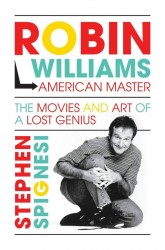
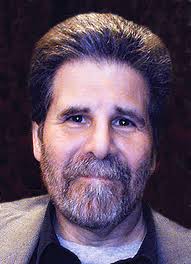

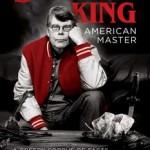

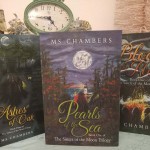 THE SISTERS OF THE MOON Trilogy – Samantha Chambers
THE SISTERS OF THE MOON Trilogy – Samantha Chambers (Italiano) UNA SPIEGAZIONE PER TUTTO – Gábor Reisz
(Italiano) UNA SPIEGAZIONE PER TUTTO – Gábor Reisz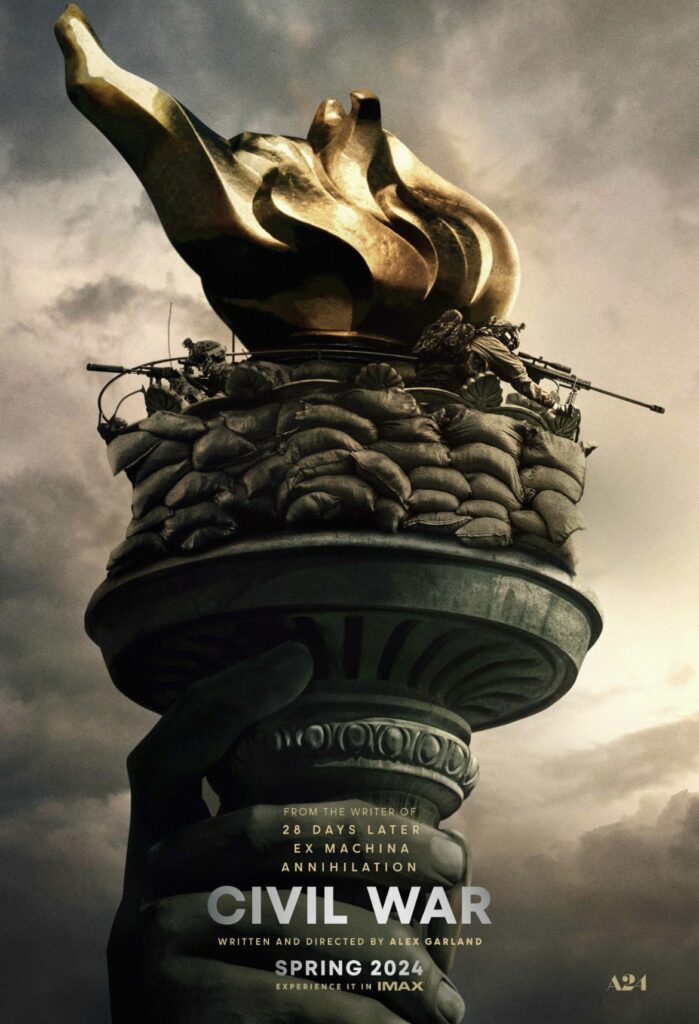 (Italiano) CIVIL WAR – Alex Garland
(Italiano) CIVIL WAR – Alex Garland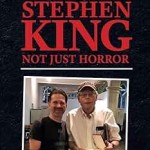 STEPHEN KING NOT JUST HORROR – Hans-Ake Lilja
STEPHEN KING NOT JUST HORROR – Hans-Ake Lilja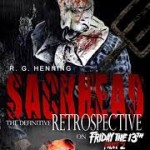 SACKHEAD:The Definitive Retrospective on FRIDAY THE 13th PART 2 – Ron Henning
SACKHEAD:The Definitive Retrospective on FRIDAY THE 13th PART 2 – Ron Henning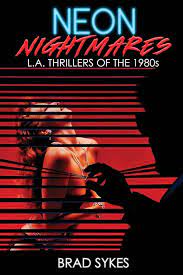 NEON NIGHTMARES: L.A. Thrillers Of The 1980′s – Brad Sykes
NEON NIGHTMARES: L.A. Thrillers Of The 1980′s – Brad Sykes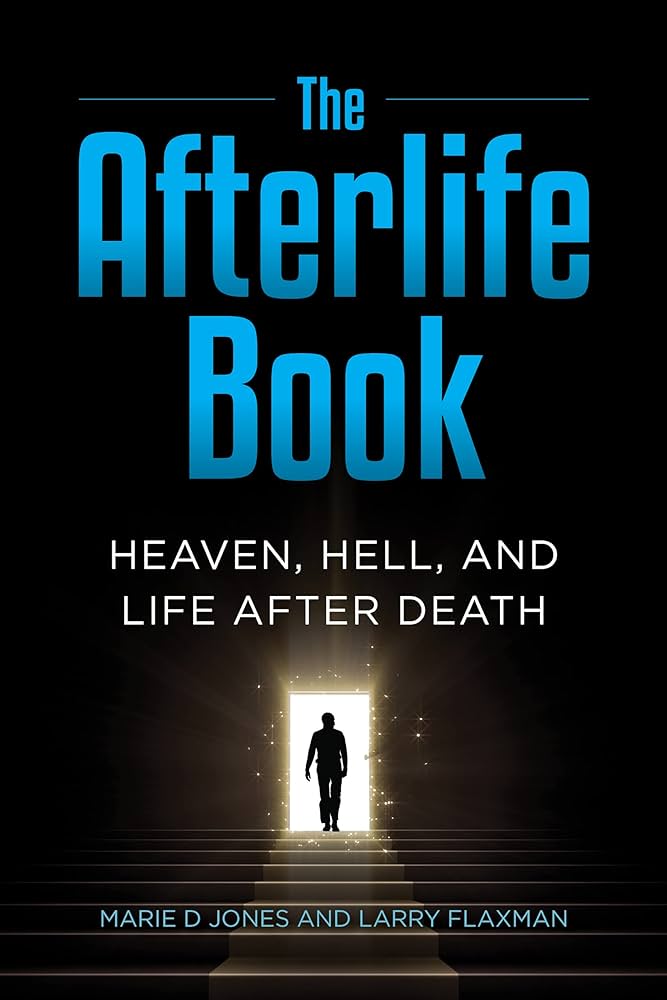 THE AFTERLIFE BOOK: Heaven, Hell, And Life After Death – Marie D. Jones & Larry Flaxman
THE AFTERLIFE BOOK: Heaven, Hell, And Life After Death – Marie D. Jones & Larry Flaxman POPULATION PURGE – Brian Johnson
POPULATION PURGE – Brian Johnson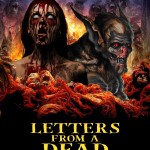 LETTERS FROM A DEAD WORLD – David Tocher (review & interview)
LETTERS FROM A DEAD WORLD – David Tocher (review & interview)